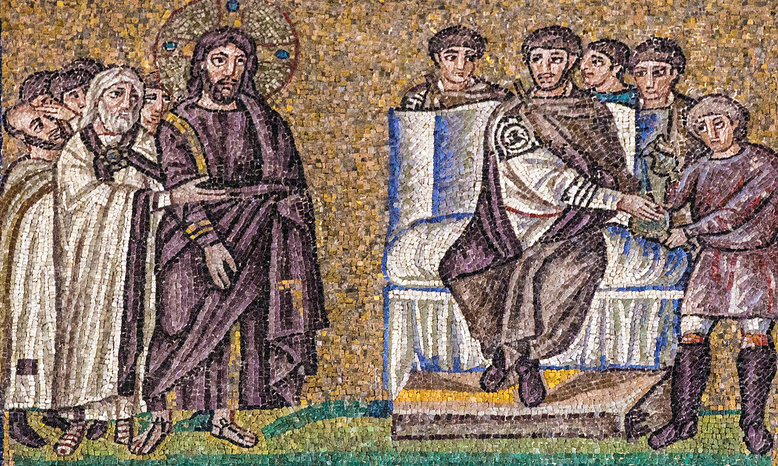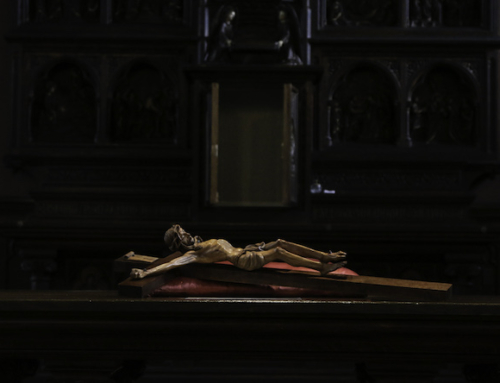In the Gospel narratives of Christ’s passion, his crucifixion is preceded by an episode in which the people deny his kingship. Pontius Pilate asks the crowds if he should crucify their king, and he is met with this response: “We have no king but Caesar” (John 19:15). Such words are heart-wrenching, especially when one considers how the children of Israel desired liberation from Roman oppression. In this exchange, the people have sold themselves out, trading the Son of God, for a pagan, Gentile ruler. And when one considers just who this Caesar was, “selling out” seems like an understatement.
This Caesar was not the long-reigning Octavian Augustus (who ordered the imperial tax at the time of Jesus’s birth), but his successor Tiberius, who became the second Roman Emperor in A.D. 14. In Saint Luke’s Gospel, the evangelist mentions him by name during the beginning of Jesus’s ministry (Luke 3:1), but there are no further direct references to him in Scripture. At the time of Jesus’s trial before Pilate, Tiberius still ruled the empire, but looking at the details of his reign, it is distressing to consider whom the crowds were calling their only king.
We know from other historical sources that about a decade earlier, Tiberius’s son and heir was murdered by a rival. In the midst of his anguish, he withdrew from public life for the rest of his days, abandoning his people and secluding himself on the island of Capri. He was known to pass his time on the island with much debauchery and lewd activity. Tiberius would only live for a few years after the events of Good Friday, dying in A.D. 37 at the hands of his successor Caligula.
If we read the cry of the mob at Jesus’s trial in context, it can be read as, “We have no king but an earthly, passing emperor who has abandoned his people for a life of depravity.” This should give us pause in order to reflect upon our own lives, especially in these days of Lent. Sin is a reality in our fallen human condition, in which we love something created and temporal in place of our Eternal Creator. When we sin, be it through thoughts, words, deeds, or omissions, we deliberately place some obstacle in the way of our relationship with God. Like the crowds on Good Friday, rather than acknowledging Jesus as our king, our sins echo the acclamation of the crowd: “We have no king but Caesar.” We simply substitute Caesar with the sins that we choose over God.
In spite of the fact that we abandon God through our sins, the Father does not abandon us. In his wondrous love, he welcomes the repentant sinner with open arms, offering healing and forgiveness. Through the death of Christ, God transforms us, washing away our sins in the blood of his Son and adopting us as his beloved children. By the grace of Christ, we are made new creatures, rising from the plague of sin to new life in his glorious resurrection.
This Lenten season affords us the opportunity to turn away from sin through acts of prayer, fasting, and almsgiving. By uniting ourselves more closely to the passion and death of Christ, we are able to see our own frail humanity, and the areas of life in which we are most in need of his help. However, the repentance of the Lenten season is not merely about stopping sinful actions– that is only the first step. By following the promptings of the Holy Spirit, we must also allow the grace of Christ to form and deepen our union with him. In this way, we can faithfully and truly exclaim: “We have no king but Jesus.”
✠
Photo by Fr. Lawrence Lew, O.P. (used with permission)







